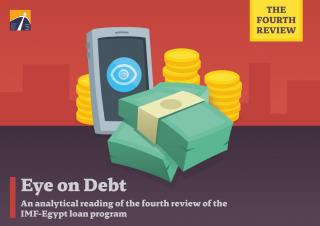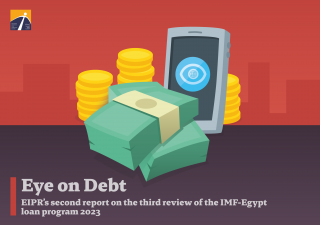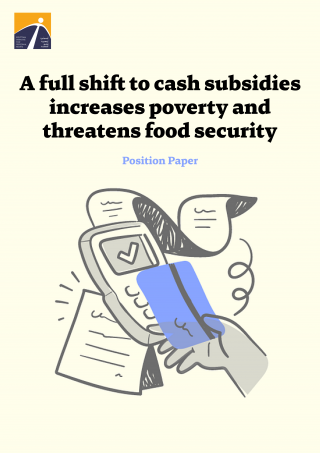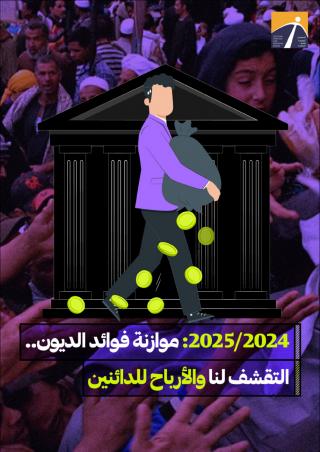Position paper
Files: National Budget
Today, Sunday 5 October, EIPR publishes its new report in the "Eye on Debt" series, which analyses the Fourth Review of Egypt’s agreement with the International Monetary Fund (IMF) regarding the Extended Fund Facility (EFF) programme.
Introduction
After a delay of about five months, the International Monetary Fund (IMF) completed the fourth review of the Extended Fund Facility Arrangement for Egypt, which Egypt signed in late 2022.
We, the undersigned Egyptian, regional and international human rights organisations, are writing to provide input ahead of the negotiations on the Memorandum of Understanding (MoU) for the EU’s €4 billion Macro-Financial Assistance (MFA) packag
The International Day of Education is marked on January 24 every year. The Egyptian constitution recognizes education as one of the fundamental human rights.
More inflation…more pain inflicted on the people of Egypt
After a downward trend in previous months, Egypt's inflation rates rose again in August and September. The rise was driven by the government's continued implementation of the IMF program's measures, most notably the hike in energy and electricity prices.
The government is seeking to fully transition from a commodity subsidising system to a cash subsidy system and tasked the “National Dialogue” with discussing the transition with civil society to develop a clear plan for the state and the government on how to implement this transition ‘if it proves feasible,’ as Prime Minister Mostafa Madbouly has said.
The Egyptian Initiative for Personal Rights (EIPR) published a position paper entitled "A full shift to cash subsidy would increase poverty and threaten food security", contributing to the discussion called for by the government around its prop
As the world marks the Teachers' Day today, there is an intense debate in Egypt concerning the lack of education infrastructure and the shortage of teachers – as an estimate of 470,000 teachers are needed nationwide.
The Egyptian Initiative for Personal Rights (EIPR) released today an analytical paper entitled "2024/2025: A Budget for Interest on Debt... Austerity for us, profits for creditors".







